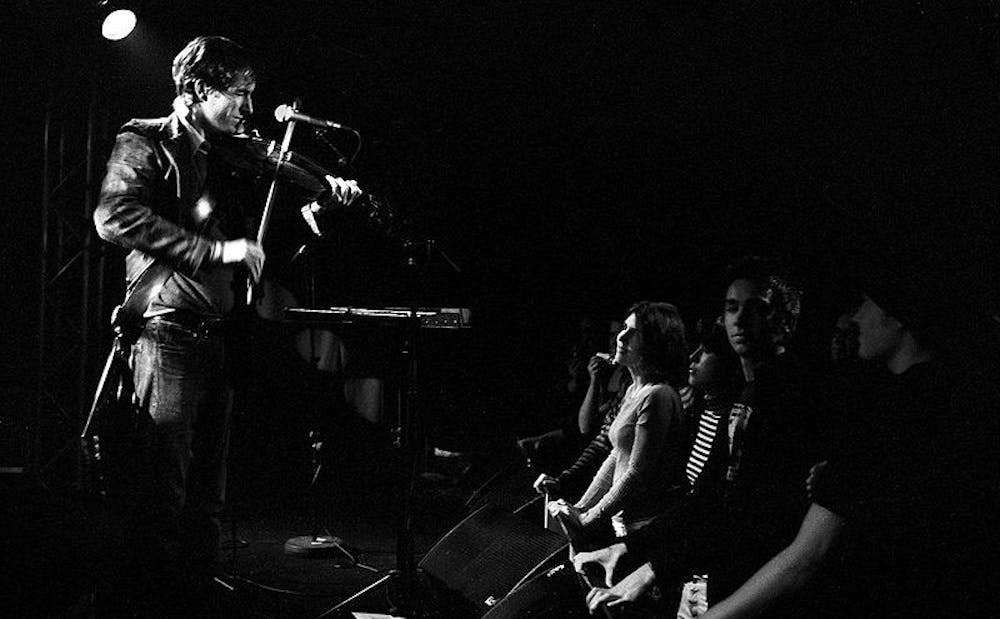4.5/5 stars
Andrew Bird
After “Break It Yourself” and “Hands of Glory,” Andrew Bird has taken a new route back to his hometown, Chicago, and to one street in particular: ‘Pulaski at Night.’ The song weaves through an eclectic, and tentative, medley of senses: the nostalgia of something lost, the comfort in familiarity, the melancholy of never fully knowing and the hope in starting over.
“I Want to See Pulaski at Night” is a heartrending and rolling cinematic score, threaded together by the string-oriented themes that meld into or surface throughout ‘Pulaski at Night.’ These aren’t necessarily new tricks, either. It’s quintessential Andrew Bird, but presented in a new and more layered way; it’s gentler, revealing itself piece by piece. The plucking, whistling and harmonic double stops settle us into a familiar soundscape before Bird slowly introduces additional elements. Bird hits us with piano accompaniments, resounding timbers and rhythmic violin strumming. It’s deliberately fashioned to keep us on edge, and once again, Bird pulls at us, affecting a plaintive beauty as he pulls his bow.
The EP starts off warily and sounds almost foreign. In the first track, ‘Ethio Invention No. 1,’ Bird embeds East and Southeast Asian sounds in his pizzicato and the tinnier inflections. Bird flutters around a theme, dilettantish as he introduces us to the hazy story behind “Pulaski.” When the layers are set in place, he continues onto ‘Lit From Underneath’ and ‘Logan’s Loop,’ two tracks with the warmth and quicker pace to which we’re grown accustomed. By the time ‘Pulaski at Night’ is over, we’ve taken our breaths and settled down into the grittier double stops and chiming single piano notes of ‘Hover I.’ Underlying the rustic sound is a subtle and delayed frenzy that blends into ‘Hover II.’ The track quivers with layered plucking, harking to the EP’s opening theme while grounding it in a deeper, and more resolute, tonality. There’s a sense of movement—it wavers, but the intention remains firm. The chorusing layers flourish and fade beneath the high-pitched and magnetic violin melody, reminiscent of Bird’s 2007 ‘Yawny at the Apocalypse.’
The last track, ‘Ethio Invention No. 2,’ starts with muffled, ambient noise before it tapers back into the plucking that started off the album. It’s more urgent now, and much sooner than in the previous tracks, Bird loops in complexities. Soon he’s strumming, fiddling and throwing in harmonics and trills. He’s familiarizing us with something new. The elements are distinct, yet they coalesce into a busy soundscape by the end, slowly distorting underneath Bird’s sparse melodies until coming to the hushed close. As always, we’re left yearning.
“Come back to Chicago, city of light,” hums Bird. He’ll “paint you a picture,” “write you a story” and “send you a postcard,” but he realizes—a little sadly—that he can never fully capture his home. So instead, he picks up what he can, sculpts them together and starts over. Andrew Bird pulls us into his continuous, universal back and forth: from the familiar into the unfamiliar and back. We move to home and away from home, endlessly feeling out our paths to a person, place or dream. From the beginning to the (momentary) end, there’s a persisting tenuousness that has finally started to burn again, erratic and uncertain, but jubilant.
Get The Chronicle straight to your inbox
Signup for our weekly newsletter. Cancel at any time.

